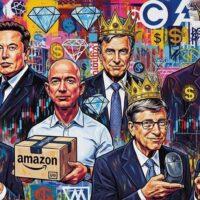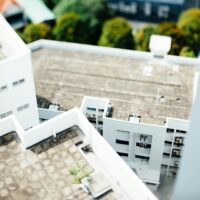The arrest of former Philippine President Rodrigo Duterte in March 2025, following an International Criminal Court (ICC) warrant for crimes against humanity, has sent shockwaves through the nation’s political landscape. This unprecedented event marks the first time a Philippine leader has faced an international tribunal, setting a historic precedent for accountability and justice. Yet, as Duterte awaits trial in The Hague, his political influence remains undiminished, with his family and allies continuing to shape the country’s future.
Duterte’s arrest and the subsequent impeachment of his daughter, Vice President Sara Duterte, have intensified the already bitter rivalry between the Duterte and Marcos families. The 2025 midterm elections, held in May, further exposed the deep divisions within Philippine society, as voters weighed the legacies of two of the country’s most powerful dynasties. The results revealed a political landscape in flux, with the Dutertes reasserting their dominance in key regions and the Marcos administration struggling to consolidate power.
This report examines the legal, political, and social implications of Duterte’s ICC arrest, the fallout from the Duterte-Marcos feud, and the broader power crisis gripping the Philippines. It also explores how these developments are reshaping the country’s foreign policy, governance, and the 2028 presidential race.
The ICC Arrest: A Historic Moment for Justice
Rodrigo Duterte’s arrest on March 11, 2025, was the culmination of a years-long investigation by the ICC into his controversial war on drugs. During his presidency (2016–2022), Duterte’s anti-drug campaign resulted in the deaths of an estimated 30,000 individuals, many of whom were extrajudicially killed by police and vigilante groups. Human rights organizations, including Amnesty International and Human Rights Watch, had repeatedly condemned the campaign, accusing Duterte of fostering a culture of impunity.
The ICC’s decision to issue a warrant for Duterte’s arrest was hailed as a landmark victory for international justice. “This is a historic moment in the fight against impunity,” said Maria Ressa, Nobel Prize-winning journalist and a vocal critic of Duterte’s policies. “For the families of the victims, this arrest brings a glimmer of hope that justice may finally be served.”
However, the arrest has also sparked widespread protests in the Philippines, particularly in Duterte’s stronghold of Davao City. Thousands of supporters gathered outside the ICC headquarters in The Hague, carrying Philippine flags and banners with slogans like “We stand with FPRRD” (Former President Rodrigo Roa Duterte). Online, disinformation campaigns have proliferated, with pro-Duterte accounts claiming that the ICC “kidnapped” the former president and that the arrest was politically motivated.
The Duterte-Marcos Feud: A Battle of Dynasties
The arrest of Duterte and the impeachment of Sara Duterte have deepened the rift between the Duterte and Marcos families, two of the Philippines’ most influential political clans. The alliance between Ferdinand “Bongbong” Marcos Jr. and Sara Duterte, which secured their landslide victory in the 2022 presidential elections, has collapsed spectacularly in 2025. The feud began in late 2024, when Marcos Jr. accused Duterte of undermining his administration by publicly criticizing his policies, particularly his stance on China and the South China Sea disputes.
Sara Duterte’s impeachment in February 2025, on charges of corruption and threatening to kill Marcos Jr., marked a turning point in the rivalry. The impeachment trial, set to begin in the Senate later this year, has further polarized the nation. “This is not just a political feud; it’s a battle for the soul of the Philippines,” said Richard Heydarian, a political analyst at the University of the Philippines. “The Dutertes represent a populist, strongman style of governance, while Marcos Jr. is trying to project a more modern, reformist image. The problem is, neither side is willing to back down.”
The 2025 midterm elections became a proxy war between the two dynasties. Despite the legal challenges facing the Dutertes, their candidates performed strongly in the Senate race, with four Duterte-backed candidates winning seats. In contrast, only five of Marcos Jr.’s endorsed candidates were victorious. The results underscored the enduring appeal of Duterte’s brand of politics, particularly in the southern Philippines, where his family’s influence remains unshaken.
The 2025 Midterm Elections: A Political Earthquake
The May 2025 midterm elections were widely seen as a referendum on the leadership of Marcos Jr. and a test of the Duterte family’s resilience. With over 18,000 national and local positions up for grabs, the elections revealed a deeply divided electorate. The Duterte-endorsed coalition, led by the Partido Demokratiko Pilipino, emerged as a major opposition force, securing key victories in the Senate and local races.
Among the most notable winners were former police chief Ronald “Bato” dela Rosa and Senator Bong Go, both close allies of Duterte. Their success highlighted the continued popularity of Duterte’s tough-on-crime policies, even as his legal troubles mounted. “The elections showed that Duterte’s base is still very much alive,” said Aries Arugay, chair of the political science department at the University of the Philippines. “His supporters see him as a defender of the poor and a champion against corruption, regardless of the ICC case.”
In contrast, Marcos Jr.’s administration faced significant backlash over issues such as rising inflation, corruption scandals, and his handling of the Duterte feud. His trust ratings have plummeted, and his party’s poor performance in the elections has raised questions about his ability to govern effectively. “Marcos Jr. is now in a precarious position,” said Heydarian. “He needs to deliver on his promises of economic reform and good governance, or he risks losing even more support.”
The Legal and Political Fallout of Duterte’s Trial
Duterte’s trial at The Hague is expected to have far-reaching legal and political consequences for the Philippines. Legally, the case could set a precedent for holding leaders accountable for human rights violations, not just in the Philippines but globally. “If Duterte is convicted, it will send a strong message to other leaders that they cannot act with impunity,” said a legal expert from the University of the Philippines. “It could also embolden victims of other authoritarian regimes to seek justice.”
Politically, the trial has already galvanized Duterte’s supporters, who view the ICC as a tool of Western interference. “The ICC has no jurisdiction over the Philippines,” declared Duterte’s legal team, echoing the former president’s long-standing rejection of the court’s authority. This sentiment has resonated with many Filipinos, particularly in regions where Duterte’s anti-drug campaign was most aggressively implemented.
For the Marcos administration, the trial presents a dilemma. While Marcos Jr. has distanced himself from Duterte’s arrest, he has also avoided outright condemnation of the former president, fearing a backlash from Duterte’s supporters. “Marcos Jr. is walking a tightrope,” said Heydarian. “He needs to appear as a champion of the rule of law, but he also can’t afford to alienate the millions of Filipinos who still support Duterte.”
Foreign Policy: The China Factor
One of the most contentious issues in the Duterte-Marcos feud is foreign policy, particularly the Philippines’ relationship with China. During his presidency, Duterte pursued a conciliatory approach toward Beijing, despite the South China Sea disputes. He even claimed to have reached a “gentleman’s agreement” with Chinese President Xi Jinping, which critics argued compromised Philippine sovereignty.
Marcos Jr., in contrast, has adopted a firmer stance on China, aligning more closely with the United States. This shift has angered Duterte’s supporters, who accuse Marcos Jr. of betraying the former president’s legacy. “Duterte’s foreign policy was about pragmatism,” said a former Duterte aide. “He believed in engaging with China to secure economic benefits for the Philippines. Marcos Jr. is playing into the hands of the U.S., and that’s not in our best interest.”
The foreign policy divide has become a central theme in the 2025 elections, with Duterte-backed candidates advocating for a return to his China-friendly policies. The outcome of this debate will have significant implications for the Philippines’ strategic position in the region, particularly as tensions between the U.S. and China continue to escalate.
The Future of the Duterte Dynasty
Despite the legal and political challenges, the Duterte family remains a formidable force in Philippine politics. Rodrigo Duterte’s continued popularity, even from his jail cell in The Hague, is a testament to his enduring influence. His daughter Sara, though impeached, remains a key player, with her political future hanging in the balance as her trial unfolds.
The Dutertes’ ability to maintain power despite their legal troubles is a reflection of the broader issue of political dynasties in the Philippines. “The Dutertes are a symptom of a larger problem,” said Heydarian. “Political dynasties dominate Philippine politics, and until there are meaningful reforms, this cycle will continue.”
Looking ahead to the 2028 presidential elections, the Duterte family is already positioning itself for a comeback. Sara Duterte, if acquitted, could emerge as a strong contender, while other family members, such as her brother Sebastian, are being groomed for leadership roles. “The Dutertes are not going away,” said Arugay. “They have a loyal base, deep political networks, and a narrative that resonates with millions of Filipinos. The Marcos administration ignores this at its peril.”
Public Reaction: Polarization and Protests
The arrest of Duterte and the impeachment of Sara have deepened the polarization within Philippine society. Supporters of the Dutertes have taken to the streets, organizing rallies and prayer vigils to demand his release. In Davao City, Duterte’s hometown, protesters have clashed with police, accusing the government of political persecution.
On the other hand, human rights activists and families of the victims of Duterte’s war on drugs have celebrated the ICC arrest as a long-overdue step toward justice. “This is a victory for all the families who lost loved ones,” said a representative of a victims’ advocacy group. “We hope this trial will bring closure and accountability.”
The divide is also evident online, where pro-Duterte and anti-Duterte camps engage in heated debates. Disinformation campaigns, fueled by social media, have further inflamed tensions. “The spread of fake news is making it harder for Filipinos to have a rational discussion about these issues,” said a media analyst. “It’s creating an environment where facts are secondary to emotions and loyalty.”
Conclusion: A Nation at a Crossroads
The arrest of Rodrigo Duterte and the ensuing power crisis have thrust the Philippines into uncharted territory. The legal battle at The Hague, the Duterte-Marcos feud, and the results of the 2025 midterm elections have exposed the deep fractures within the country’s political system. As the nation grapples with these challenges, the path forward remains uncertain.
For the Marcos administration, the priority must be to restore public trust and deliver on its promises of reform. Failure to do so could further embolden the Duterte family and their allies, who remain a potent political force. For the Dutertes, the focus will be on surviving the legal onslaught and positioning themselves for a return to power in 2028.
Ultimately, the Philippines stands at a crossroads. The choices made in the coming years will determine whether the country can move beyond the era of strongman politics and dynastic rule—or whether it will remain trapped in a cycle of division and instability. As the ICC trial unfolds and the political drama continues, one thing is clear: the legacy of Rodrigo Duterte will shape the Philippines for generations to come.













